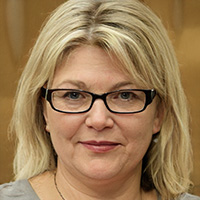Table of contents
Oxidative stress and aging are two complex and interrelated processes that play a major role in the longevity of people. In fact, aging is a natural process associated with a chronic oxidative condition. Do you want to know more? Here we explain it to you.
What is oxidative stress?
Environmental and genetic factors have a direct influence on the oxidative process and, consequently, on human aging. Progressively, cellular oxidation causes the organism to lose homeostasis and good health.
Over the years, the presence of free radicals in the body progressively increases and oxidative deterioration occurs. If the body does not have sufficient antioxidants to counteract the effect of free radicals, cellular oxidative activity will increase. Thus, premature aging will occur.
In short, cellular oxidation is a natural process associated with aging. All living beings are prone to it and we will all age. The important thing is to do it in the best possible way.
What are the main causes of aging?
Aging is a very complex and multifactorial process that affects everyone, but not in the same way. For this reason, some of us are longer-lived than others and experience old age in different ways.
The excessive presence of free radicals in the body causes cellular oxidation and, consequently, progressive decay. Why does aging occur?
Insufficient intake of antioxidants.
Excessive and intense physical activity.
Environmental factors.
Bad habits.
Unhealthy lifestyle.
Certain medications.
Main symptoms of oxidative stress
The physiological systems of the human organism that are first affected by cellular oxidation are those responsible for regulating metabolic response and our energy capacity. The main symptoms that denote an organism undergoing an oxidative process are:
Premature skin aging: the dermis begins to lose regenerative capacity, collagen, and elastin.
Potentiation of diseases associated with old age: degenerative problems and psychocognitive decline gain strength.
Weakening of the cardiovascular system: conditions such as hypertension and coronary insufficiency gain prominence.
Appearance of inflammatory problems: systemic diseases of inflammatory origin have a higher incidence.
Affection of the central nervous system: brain capacity deteriorates and instability and memory disorders may occur.
Impairment of the musculoskeletal system: muscles and joints begin to show stiffness, swelling and pain.
As you can see, once the oxidative process begins to exert its effect on the human organism, aging begins to show. Health problems are the main causes of the decline in people’s quality of life.
How to treat oxidative deterioration?
The best option to counteract the increase of free radicals in the human organism is through supplementation with antioxidant substances. Through proper nutrition, we prevent premature aging and minimize cell damage.
If we maintain moderate physical activity, we also boost our body’s antioxidant defences. Therefore, it is advisable to practice moderate exercise on a regular basis and to remain mentally and physically active.
In order to treat people in advanced aging process, it is essential that we dedicate effort and time to certain issues. The design of a balanced diet rich in natural antioxidants is paramount.
Planning daily activities to promote positive attitude and movement is also important. In addition, it is important to have specific therapies and programs that work on cognitive capacity and emotions.
In short, if we maintain a healthy lifestyle, we can achieve wellness. This is also possible at an advanced age. Oxidative stress and aging are closely related to longevity and quality of life. The ideal is to find organic balance and age with the best possible quality of life. Hiring a carer can help accelerate the process of creating a healthier lifestyle.
Click here if you want to learn more: https://www.ncbi.nlm.nih.gov/pmc/articles/PMC5927356/







